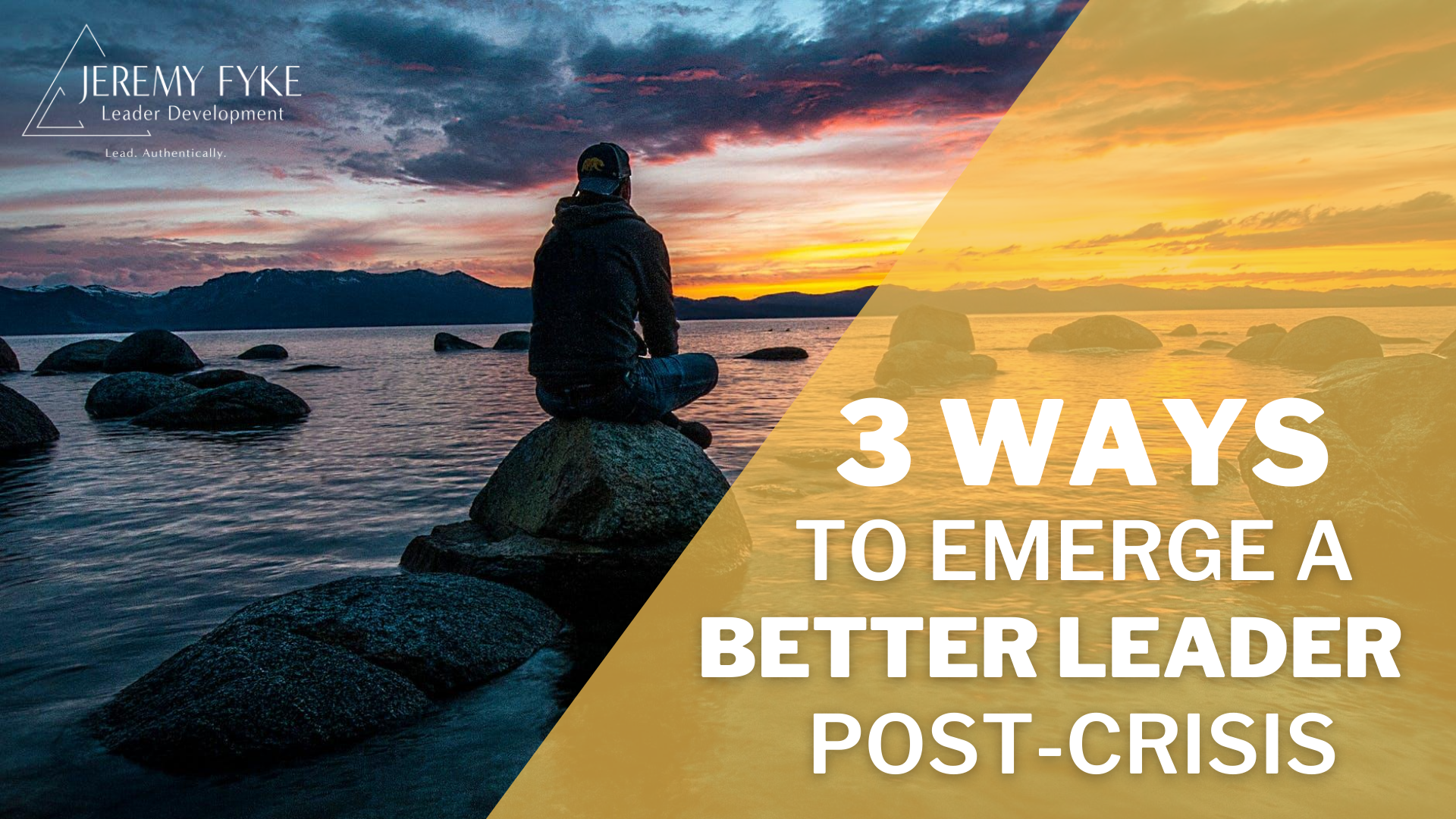
In a March 25th interview on CNBC, billionaire entrepreneur Mark Cuban said how companies respond to the COVID-19 crisis would “define their brand for decades.” Speaking specifically to the issue of whether companies should rush employees back to work, Cuban’s comments warned of the dangers of not putting employees first in times like this. As we stand now in early August, it turns out there would be no “rushing” anyone or anything back, at least not without much struggle and consequence. Still, we continue to try to make decisions about when, how, and if we’re able to return to “normal.”
By definition, crises are mostly unexpected and unprecedented. While Cuban and many others have highlighted the business and economic impact of COVID-19 on every imaginable level, I’d like to zoom in a bit. I believe unprecedented times offer unforeseen leadership opportunities that leave everyone better in the end. Here’s my challenge for you, leader. As you’re encountering something you’ve never seen, let it push you to be someone you’ve never been. To help you get there, I propose to you three areas of growth.
SERVE
Jefferson Santos is credited as saying, “If serving is beneath you, leadership is beyond you.” Most accept that leadership involves service. But I wonder if most of us realize, at its origin, the word leader means, “go forth and die.” Chances are you’re not seeing that anywhere on a company’s list of desired skills and competencies. Would most of us sign up for that? At any rate—here we are, here you are. If you’re reading this you’re likely in some sort of leadership role—if not at work then at home. At work, it’s very possible that many people under your charge have felt things slipping away—their routines, their norms, perhaps their health or the health of their friends and loved ones. At the very least, their sense of security has been compromised. In these extreme times, the origins of the word leader are quite instructive.
Never has there been a greater opportunity than now to serve—to die to self—in new and perhaps radical ways. Maybe it’s natural for you to provide primarily instrumental support—offering to help with a project tangibly. Or, maybe you lean toward informational support—you know where to get the resources/tools someone needs. Maybe now it’s time to provide emotional support and extend grace, even if that’s against your instinct. The reverse could also be true. Perhaps it’s easy for you to provide guidance or a listening ear, but it might be time to give someone a break or take something off their plate entirely. Dying to self involves helping someone live with a lighter load.
SEE
I’m betting, if you’re working from home and your employees are working from home, or perhaps some combination thereof, you’re seeing some things in a whole new light. Let me challenge you to really “see” your people in a whole new light. I’m sure you’ve always known they have a life outside of work—friends, spouse, kids, pets. But when so many are or have been “at work” at home, it levels the playing field and forces us to see things more vividly.
This is your chance to empathize, to ask questions you perhaps once thought too personal because “business is business.” Even the most empathetic leaders, in meriting the position they’re in now, have developed a keen eye toward financials and results. Indeed, sharp business acumen is required for high-level execution. But now more than ever, our keen eyesight needs to be tuned on our people. Even if your team, your people, are in a groove now and are firing on all cylinders, their kids might be going back to school soon, causing them to shift their routines and experience stressors they haven’t faced in a few months. Focusing on people first isn’t a sacrifice to business. It simply refines our vision and reorders our priorities. In the end, both win.
SAY
Who do you want to be? Life is different in many ways. Even though on balance we’re probably going out less and maybe doing less socially, this hasn’t necessarily felt like a slow down across the board. Has anyone else felt busier than ever during these past few months?
It may not be a slowdown, but it’s the time for a change-up. Times like these are a form of detachment—from our norms, our routines, our comforts, our customs. And detachment brings opportunities for creating new attachments to new and better routines, habits, and mindsets.
My challenge to you, take the time right now to articulate who you want to be as a leader. Personally, I’ve been reflecting a lot. As a Christian, I’ve been praying a lot and asking God to show me who I need to be right now, after this, as a result of this, etc. Regardless of your personal beliefs or worldview, use this as an opportunity to really examine yourself. In my role as a college professor and leader developer in the business world, I’ve been exploring who I need to be now and after this. What levels of relationship do I need to be at with my students? How might I provide resources to my clients differently?
Most importantly, I challenge you to consider who before do. Who do you want to be? Here’s how you can apply this as a simple exercise. Complete this prompt—“It’s summer, 2021, and my employees are saying ____________ about me as a leader.” Whatever goes in that blank is where you need to get to. This type of projection is important for behavior change. But equally important before that is reflection. What needs to change? What mindsets need to be shut down during this shutdown? What needs to go in their place?
Leader, you have a great responsibility. If you’re reading this and you’re still leading after the past several months during these unprecedented times, you deserve some credit. But there’s always more growth, more development ahead. Use this crisis as an opportunity to develop authentically—to see yourself as a work in progress. In the effort to help your team, your company be successful, and perhaps be part of defining its brand for decades, don’t miss what’s right in front of you. You have to start somewhere, and my prayer is that you start by serving in new and deeper ways, seeing your people more vividly, and saying who you want to be then authentically working to get there.
